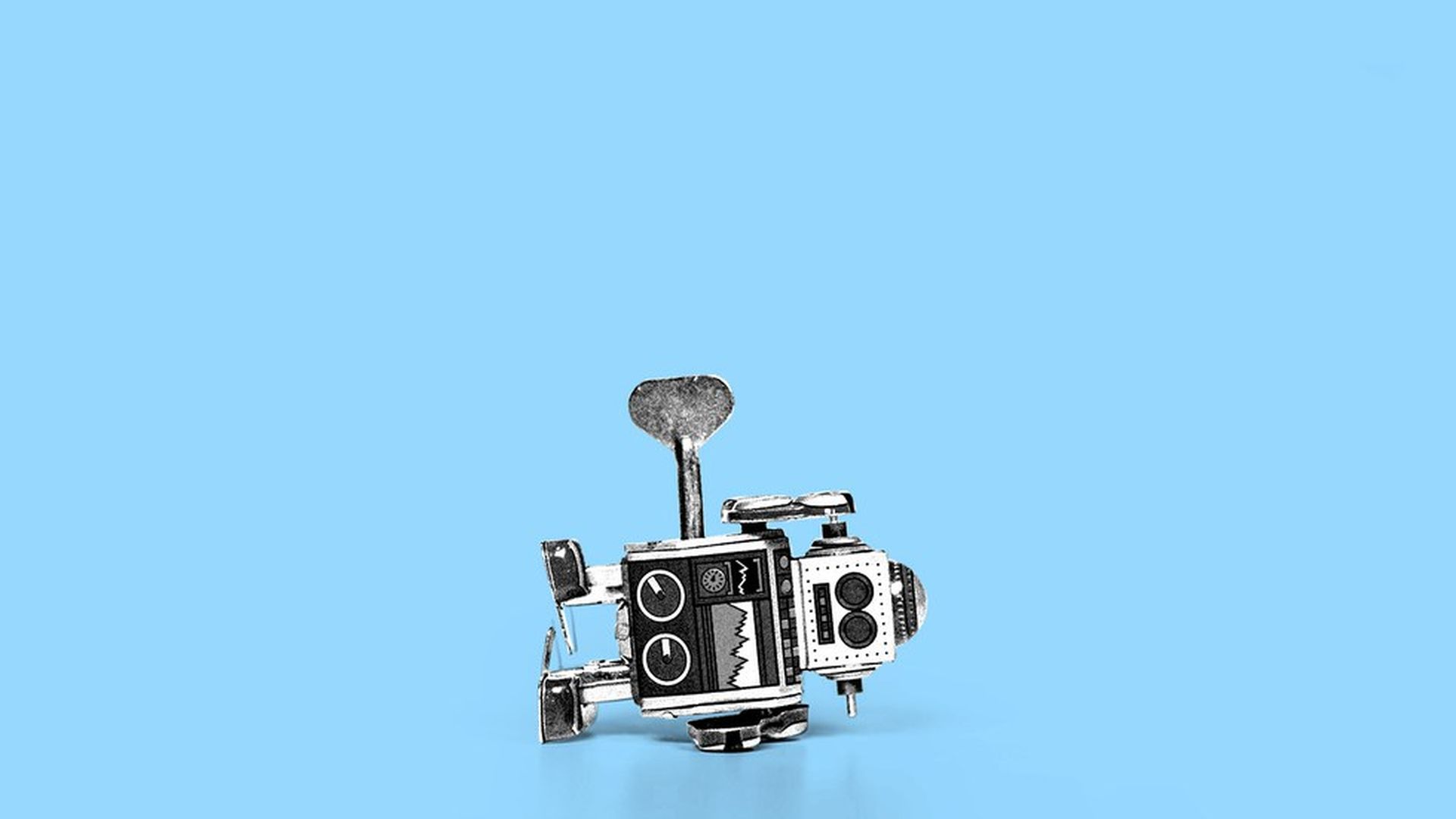Americans just don't fear robots
Add Axios as your preferred source to
see more of our stories on Google.

Illustration: Rebecca Zisser / Axios
Nearly two-thirds of Americans expect humans to struggle finding work in a future of robots — all humans except themselves, that is. According to a study released today by Pew Research, they worry far less about losing their own jobs to automation.
Why it matters: The study confirms prior research that, despite the knowledge that a powerful new technological force is gathering momentum, Americans remain unperturbed about their own well-being, leaving themselves potentially vulnerable to personal financial crisis.
"For many people, this isn't real until it actually happens to them," Pew's Aaron Smith, who led the project, told Axios. What they have yet to recognize is that "it's not just something that's going to happen to fast food workers and insurance clerks," he said, but to people just like themselves.
What the studies say: The Pew report is a followup to a study it issued last year with similar findings. Likewise, a survey last month by Bloomberg Beta, a venture capital firm, found that just 12% of Americans worry about losing their job to automation. The surveys spring in large part from much-discussed 2013 research from Oxford University that said 47% of American jobs are at risk of automation by 2033.
The bottom line: Numerous experts challenge such pessimism, but regardless of what anyone thinks, there is very little dispute that a lot of people are going to lose their jobs. The only questions are whether they will find new work, and if so, how long it will take. Should dislocation occur on the scale some forecasters project, experts fear social chaos. "Some people will be taken by surprise, and nothing leads to instability more than frustrated expectations," Bloomberg Beta's Roy Bahat told Axios.
According to Pew, here are the percentage of Americans who think robots will replace ...
- Fast food workers - 77%
- Insurance claims processors - 65%
- Software engineers - 53%
- Legal clerks - 50%
- Teachers - 36%
- Their own jobs - 30%
- Nurses - 20%
Other takeaways from the latest Pew study:
- Paying attention: About 94% had heard of efforts to develop driverless vehicles, and 85% know that machines could take many jobs one day.
- Partisan solutions: Democrats were far more likely to support universal income (77% to 38% Republicans) and a national service program (66% to 46%) if machines take over a substantial number of jobs. Regardless of party affiliation, the majority of respondents (85%) favored using robots for dirty or dangerous jobs, and comparable numbers of Republicans and Democrats (60% to 54%) support limiting the number of jobs that can be replaced with machines.
- Common people vs. driverless experts: 30% said they believe driverless cars will lead to more, not fewer, deaths in accidents, a repudiation of reports that autonomous vehicles will save millions of lives. And a whopping 87% want a human in the driver's seat in case of an emergency.
- Faith in humanity: in terms of artificial intelligence trained to hire employees, 57% felt better about an algorithm that still involved a human interview. Indeed, Smith said, whether it's "decision making, or creativity, or compassion in the case of robot caregivers, or the ability to assess other human beings in the case of hiring algorithms ..., the value people place on human brains at the expense of machines clearly was one of the overwhelming themes that came through all of this."

